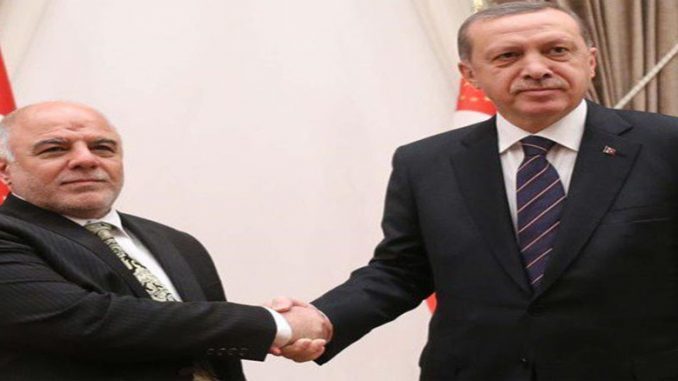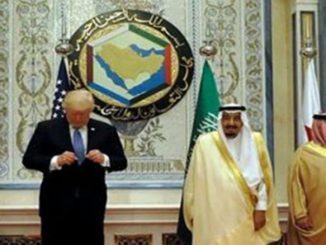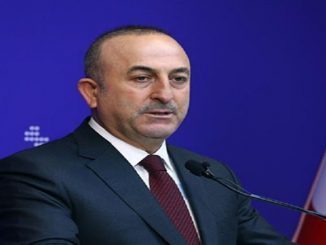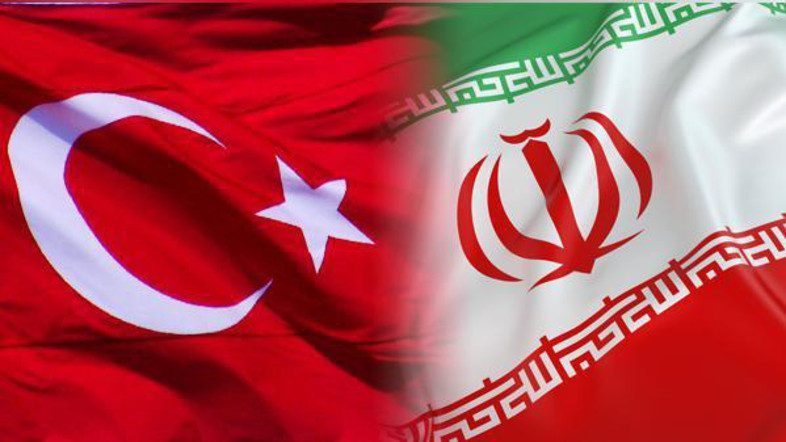
The latest phone call between Turkish President Recep Tayyip Erdogan and Iraqi Prime Minister Haider al-Abadi has widely opened the door to wondering about the sudden Turkish change toward Iraq after a period of verbal skirmishes between the two sides.
The relations between the two countries have been strained against the backdrop of the presence of soldiers from the Turkish army in a camp in Bashiqa near Mosul. While Ankara said that the soldiers were there to train fighters from the inhabitants of Nineveh province to fight the ISIS organization, Baghdad considered them “occupation forces” and demanded withdrawing them.
Some political analysts see that the change in Turkey’s stance serves as a return to the policy of zero problems with neighboring countries, while others considered that it came after assurances provided by Baghdad on preventing Hashd al-Shaabi (popular mobilization) troops from participating in the storming of the cities of Nineveh.
Turkish political analyst Oktay Yilmaz said in an interview with “Arabic 21” that it is useful for Turkey to improve its relations with neighboring countries, because it was not originally the party that caused this crisis, but it (Turkey) only wants to fight against terrorism and threats to its security.
“Turkey has provided assistance to Iraq to fight terrorism,” says Yilmaz, adding “ISIS organization threatens everyone, so Turkey does not want any bad relations with neighbors, particularly concerning the crises in Syria and Iraq because they are threatening its own security and it seeks to resolve these crises as much as possible.
The danger of the ‘Popular Mobilization’ militias
In terms of the danger of the militias of the ‘Popular Mobilization’ that Turkey had warned of earlier, Yilmaz said that Turkey continues to warn of these sectarian entities. He added that unless the Turkish military troops were stationed on the border and were willing to intervene, these militias would have probably committed massacres there.
He pointed out that there is no other party except Turkey tries to prevent these groups from committing massacres against civilians in northern Iraq, and that Turkey still warns Iraq of the danger of these entities. He also said that there are assurances from the Baghdad government not to allow access of these organizations to the cities, so that their job would be limited to besieging cities and helping the Iraqi army.
The Turkish political analyst believes that the next stage will be witnessing more Iraqi-Turkish rapprochement, revealing a planned visit by Turkish Prime Minister Binali Yildirim to Baghdad.
He pointed out that Yildirim will meet with Iraqi leaders, stressing that Turkey supports the removal of the danger of ISIS, so the Iraqi government will be more moderate and will ease its sectarian approach, because the sectarian approach pushes the other party to be much more hard-liner.
In contrast, Ribawar Abdullah, a professor of political sciences, said that Turkey’s fears of the presence of PKK bases on Mount Sinjar in northern Iraq, pushed Ankara to deploy military forces in Iraq to confront the PKK there.
He pointed out that the official Turkish dealing with the Kurdistan region in the oil file has had a negative impact on the relations between Baghdad and Ankara, and that the Government of Al-Abadi expressed its fears toward this issue, which was one of the causes of tension between the two parties.
New regional facts
And on the sudden Turkish change toward the Iraqi government, Abdullah said that there are factors that have taken place at the regional level which led Turkey to return its relation to normal with Iraq in general.
The Kurdish political analyst said he believed that Baghdad government has expressed dissatisfaction with the presence of the PKK on its territory. Also, the convergence of Russia, Turkey and Iran on the Syrian file and Turkey’s direction towards “Eurasia”, all this created conviction among Turkish leaders of the need to normalize relations between Ankara and Baghdad .
He explained that such a convergence requires that Turkey ends tension with Iraq, due to its involvement in the Syrian file, which is very spiky and Turkey is acting militarily in a direct way inside Syria, which requires a review of Turkey’s relationship with Baghdad.
Abdullah did not rule out that Turkey might have been exposed to Iranian-Russian pressures for the rapprochement with Baghdad, within the framework of the understandings in the Syrian file, stressing that it is not logical that Turkey would be engaged in a crisis with Iraq, which is Iran’s sphere of influence, while Iran has distinct relations with Russia.
For his part, head of the Iraqi Islamic Party, Iyad Samarrai, commented Monday on the shift in the Turkish position by saying, “it represents a positive turning point and expresses a practical view that better assesses the facts and reconsiders the policies.
Last Friday, President Recep Tayyip Erdoğan held talks — by phone — with Iraqi Prime Minister Haidar al-Abadi. During their conversation, Erdoğan reportedly told al-Abadi that Yıldırım planned to visit Iraq sometime in January. He did not, however, provide an exact date for the prime minister’s upcoming visit.
Sources from both sides have said that the visit would provide an opportunity to share their respective positions on recent regional developments and promote enhanced bilateral ties.
Turkey, according to the words of Erdogan, is looking forward to a very close Iraqi victory in Mosul, which will be a message for those who want to target the brotherly relations between the two countries, stressing the importance of continuing the fight against terrorist organizations in Iraq and Syria through solidarity and cooperation, according to Turkish president’s statement.



